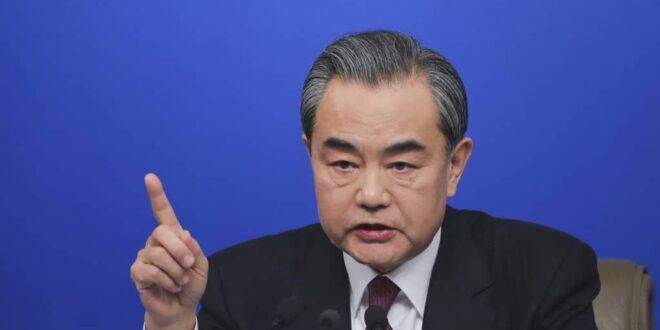Latest Developments
With China attempting to boost its influence in the Middle East, Hamas and Fatah leaders will meet in Beijing next week to conduct another round of Chinese-led unity talks that have so far failed to deliver results, The New York Times reported on July 15. Hamas’s political chief, Ismail Haniyeh, is expected to lead Hamas’s delegation at the talks, while Fatah is expected to be represented by three officials, including Fatah’s deputy chairman, Mahmoud al-Aloul. According to the Times, China’s foreign minister, Wang Yi, will meet with the two sides on July 21 and July 23, while the parties will meet on their own in between.
Hamas, an Iran-backed terrorist group that rules the Gaza Strip, and the West Bank-based Palestinian Authority (PA), which is controlled by the Fatah party and led by PA President Mahmoud Abbas, have been in conflict since they fought a brutal civil war in Gaza in 2007. More than a dozen reconciliation attempts have failed to bring the parties together, including recent attempts in Russia and Egypt. Beijing previously hosted unity talks in late April that failed to achieve anything beyond plans for further talks. The parties’ next planned meeting at the end of June was postponed, with Fatah and Hamas trading blame over who was responsible for the delay.
Expert Analysis
“China is leveraging today’s Gaza crisis in a bid to boost its regional influence tomorrow. By posing as a mediator and aid provider, China is angling to bolster its bona fides as a Palestinian champion. But talk is cheap, and summits like these often reveal a stark gap between China’s rhetoric and its actual reach in the region.” — Craig Singleton, FDD Senior Fellow and Senior Director of FDD’s China Program
“The Palestinians have been divided, both politically and physically, since the civil war of 2007. Multiple attempts to broker reconciliation by multiple actors have been unsuccessful. China is not likely to end this feud. In all likelihood, Beijing knows this. But the optics are important to Iran and the Arab world. Thus, going through the motions of diplomacy is important to Beijing.” — Jonathan Schanzer, FDD Senior Vice President for Research
War of Words Between PA and Hamas
Following an Israeli airstrike on a Hamas compound targeting Hamas leader Mohammad Deif and his deputy on July 13, Abbas blamed Hamas for prolonging the Gaza war while also condemning Israel and the United States. “The presidency sees that by escaping national unity, and providing free pretexts to the occupation state, the Hamas movement is a partner in bearing legal, moral and political responsibility for the continuation of the Israeli war of genocide in Gaza Strip,” he said in a statement. Another PA official, Munir al-Jaghoub, told the Saudi Arabian news outlet al-Arabiya, “If Hamas wanted to fight face-to-face with Israel, it would’ve done so in areas where the army is located, and not in places where there are people. Hamas is actually hiding between the residents to protect and save itself.”
In response, senior Hamas official Sami Abu Zuhri told Reuters that the PA “has chosen to be in the same trench with the occupation.” Another Hamas leader, Basem Naim — who previously took part in unity talks — said that Abbas’s statements made him and the PA “partner to the Zionist enemy and its crimes, not only in Gaza but also in all of the Palestinian land.”
 Eurasia Press & News
Eurasia Press & News


